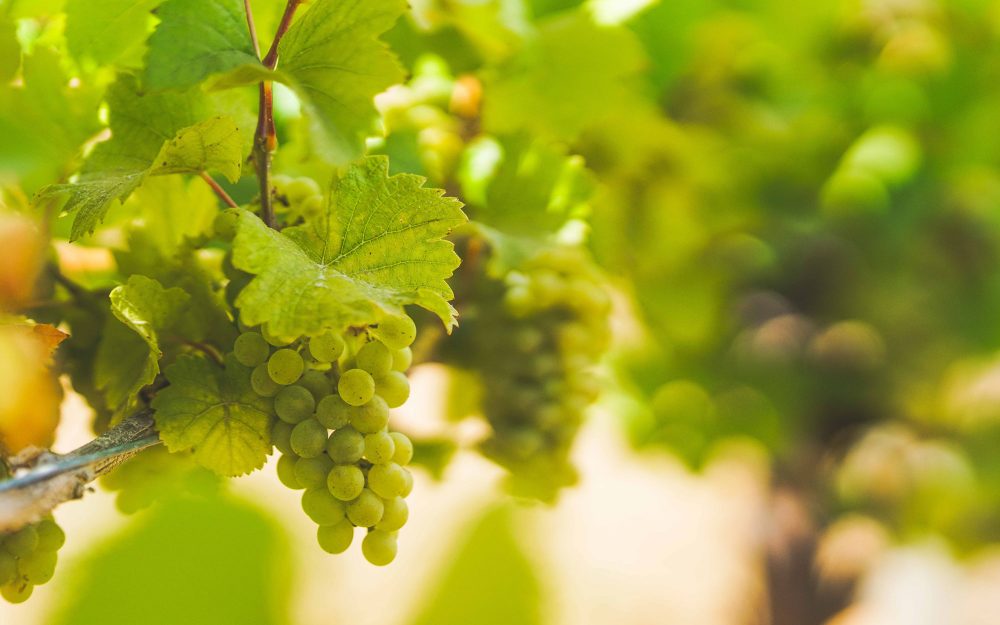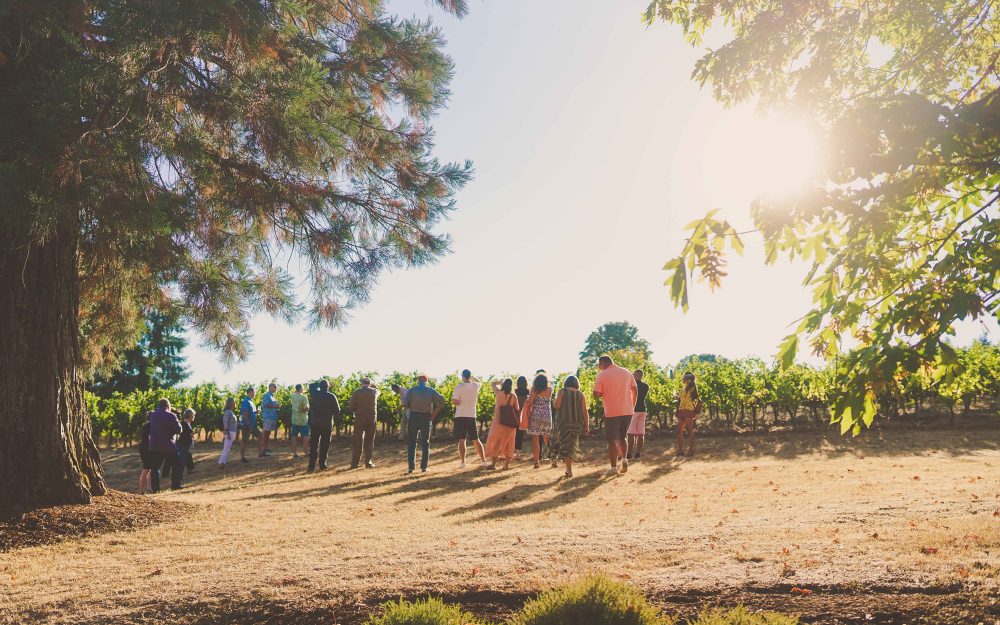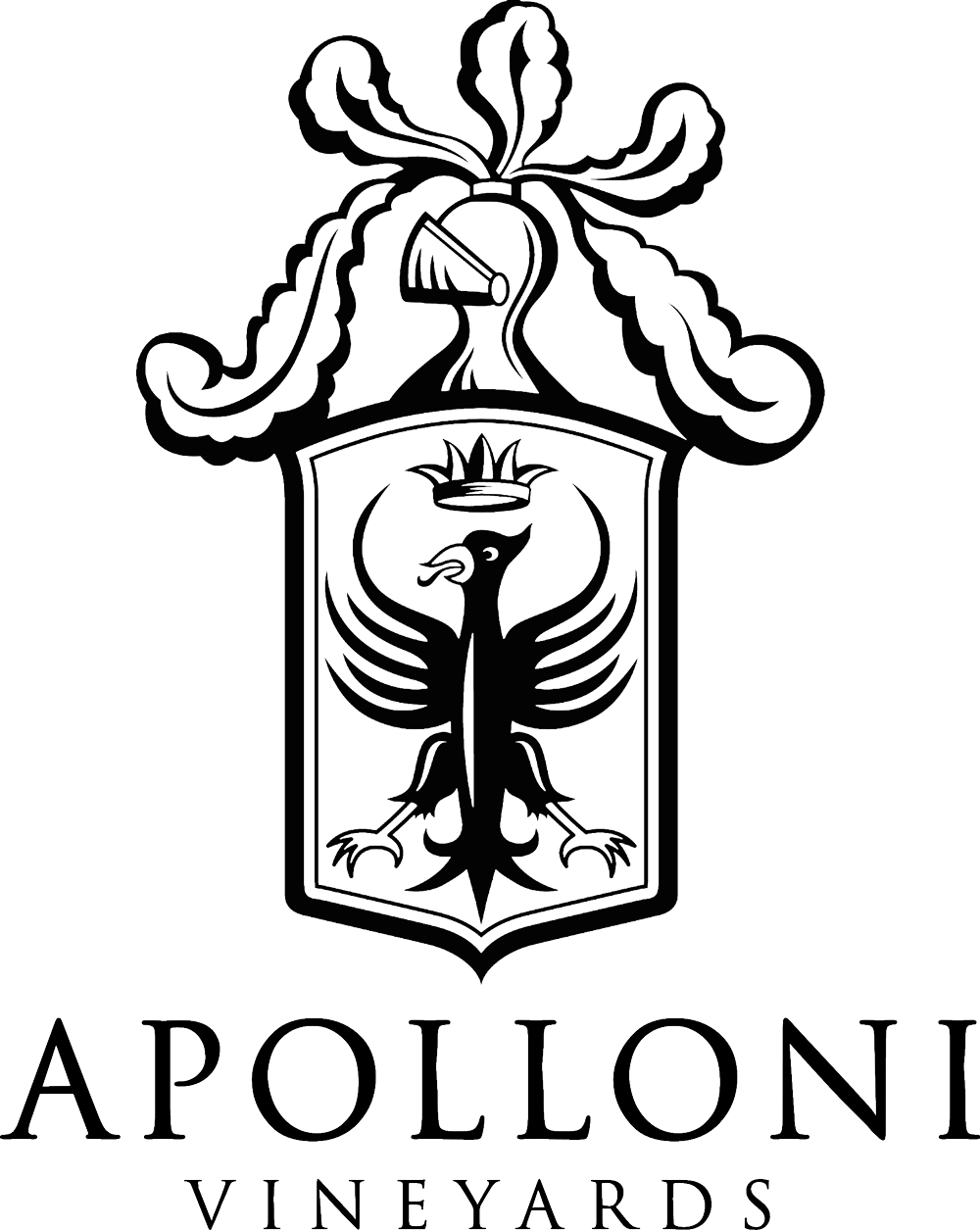OUR VINEYARDS
Beautiful, hand-crafted wine is born in the vineyard. Careful selection of site, soils, elevation, and exposure, combined with individual attention to detail make this possible.
Our unique site in the Northern Willamette Valley provides what can be the ideal climate for elegant and subtle Pinot Noir. The extended growing season and gentle ripening of our fruit contribute to the characteristic quality and complexity of our wines. Located on southerly facing hillsides ranging from 350’ to 600’ of elevation, our vineyards are planted predominantly in the Dijon clonal varietals from France, all on disease-resistant rootstock. The small berries from these vines contribute to the superior flavor extraction in our wines. The original 20 acres of Pinot Noir reside in three vineyards, named in honor of the Apolloni children.
The southeasterly facing Olivia Vineyard, planted with Dijon clones 113, 114, 115 and Wadenswil, produces subtle and floral flavors while the Southwesterly facing Filippo Vineyard, planted with Dijon clones 113, 114, 115, and Pommard, produces larger more intense flavors. Our youngest vineyard, Flaminia, is south facing and has Dijon clones 667 and 777, known for their fascinating complexity, textures, and aromatics. Our vineyard and winery site, across the road, showcases our Ruby Vineyard plantings of Pommard and 777.
Vineyard Map
EXPLORE OUR VINEYARD VIA THE INTERACTIVE VINEYARD MAPS BELOW
Varietals & Vineyard Practices
Our white wine varietals include Pinot Gris, Pinot Blanc and Chardonnay, totaling 15 acres and located at both sites. Our northern location allows for these grapes to flourish, ultimately producing cool climate wines reflective of the terroir.
Our most recent plantings include a one-acre test block of Nebbiolo and Sangiovese. These vines were originally planted in 2007, a cool growing season, in a nod to Alfredo’s Italian roots. Both varietals have done well in recent years with warm growing seasons, ripening to 23˚ to 24 ˚ Brix.
Great attention in the vineyard, from careful cropping of the fruit to the hand removal of leaves from the vine to provide each cluster of grapes the ideal amount of sunlight, are all part of our passion to produce the finest wine. The commitment to vineyard management extends below the soil; and we follow the guidelines of the Oregon LIVE sustainable viticulture program and Salmon Safe programs. Although we are not an organic vineyard, organic materials are used whenever possible; if and when any chemicals are used, they are very carefully selected and applied. The pure sunlight, air, soil and rain combine to produce the flavors unique to our vineyards and wines.
Our Sustainability Practices Include:
- Maintenance of local biodiversity in the vineyard to cultivate beneficial native species including plants and insects
- The setting aside of untouched land/ fallow acreage on our property to foster natural habitat for animals, insects and native species.
- Grafted vines on certified disease resistant rootstock
- Minimal chemical use, only from approved LIVE list
- Soil augmentation based on soil and tissue analysis
- Mulch plant materials back into vineyard
- Mechanical cultivation including use of in-row cultivator
- Compost grape materials post fermentation
- Year-round employment for vineyard staff







